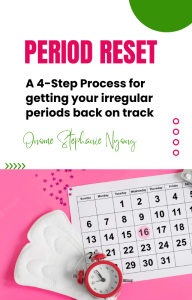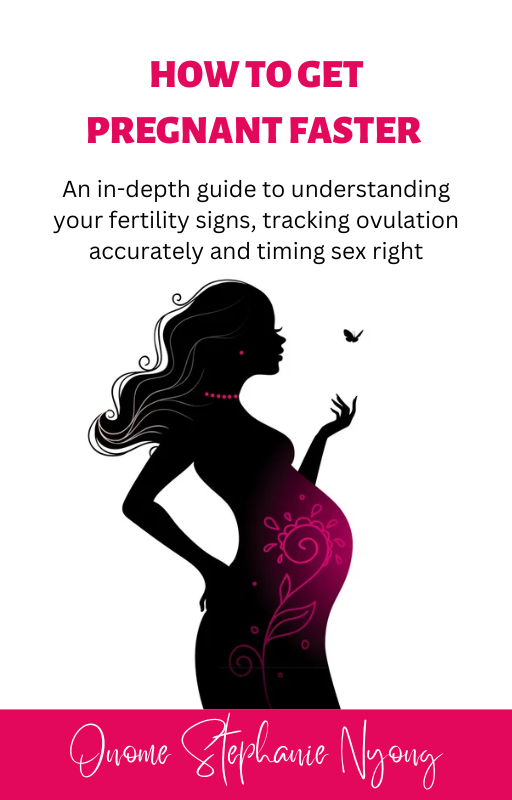It's very common to go online and browse treatment for polycystic ovary syndrome PCOS after getting the diagnosis and you will get several results; from using the pill, weight loss, glucose and insulin controlling meds, to restrictive diets and even a number of supplements. And this will definitely make you feel overwhelmed.
When I speak with women for the first time, I always make sure they have gone through a two step process before seeking treatment options.
STEP 1: I talked about in depth in a previous article: PCOS: How to know if you really have it because countless number of women have been misdiagnosed. You don't want to start treatments you don't need or opt for one that wouldn't work thereby worsening your symptoms. The fact that a few cysts were seen on ultrasound is not enough to say you have PCOS. There are a few other criteria to consider. You can always go to the link in description to watch that video after seeing this.
This article will be discussing Step 2: Knowing the type of PCOS you have.
There are about 4 different types of PCOS which require completely different treatment plans.
1. Insulin resistant PCOS
When we eat a meal, say carbs for example, your blood sugar increases then insulin is secreted to activate your cells to take up this glucose thereby reducing the sugar in the blood. So this could be taken up by your muscles for your normal bodily functions or it is stored until when needed. In Insulin resistant PCOS, your cells do not respond to taking up insulin. The blood sugar remains high and because of this, the pancreas keeps putting out more and more insulin hoping to reduce the blood sugar. These high levels of insulin will then trigger the production of androgens like testosterone from your ovaries which will prevent ovulation.
It is this high levels of androgen hormones that cause the physical symptoms like acne, male pattern hair loss, weight gain around the abdomen, excess hair growth on face, neck and body. Insulin levels need to be checked to confirm this kind of PCOS. With this type of PCOS you need to be patient because treatment takes time and you have to be consistent.
- Address your diet- reduce carbs, add protein and fats to your diet. Try your very best to quit sugar if you can.
- Sleep well. Have a sleep schedule, it helps
- Reduce stress
- Take supplements like Inositol, berberine, magnesium, Chromium and even NAC. It's a long list and you will need to speak to a professional before choosing supplements.
- Engage in exercises to improve insulin sensitivity. When you engage your muscles regularly, it will help in taking up some of those blood sugar lying around.
2. Post Pill PCOS
- A supplement like Zinc is helpful in reducing androgen levels
- Herbal supplements like Vitex/Chasteberry works to kickstart brain-ovary communication to start ovulation
- Again sleep and stress management is very important
3. Adrenal PCOS
- managing stress through certain relaxing activities can help
- supplements like Rhodiola, Ashwagandha to cope with stress and nutrients like vitamin B5 and C to support the adrenal glands and nervous system
- improving sleep works very well too
4. Inflammatory PCOS
- antioxidants like N-Acetyl Cysteine, anti-inflammatories like zinc, turmeric,omega 3 fatty acids
- address your gut health by balancing the bacteria and improve digestion.
- Avoid dairy products and other foods that trigger inflammation
- Manage stress
You see why proper testing is important. If not, you may just be undergoing treatments that won't work or even worsen your symptoms. If you want to talk about PCOS symptoms, testing, review your test results or supplements that can help, you can always book a consultation with me here.
Did you find this article helpful? Drop a comment and share with a friend!

Would like to speak to me about your irregular periods, review test results, discuss your symptoms, create a treatment plan, supplements recommendation, natural conception or birth control? Click here to book a 1 hour consultation call
You can read my free guide 'Period Reset' below to learn the 4-step process for getting irregular periods back on track

Would you like to learn how to chart your fertility signs correctly in order to track ovulation and time sex right? Get my short E-book 'How to get pregnant faster'


Stephanie is an internationally certified women's holistic hormone health practitioner and a member of the International Practitioners of Holistic Medicine, UK. She is very passionate about teaching women to master their unique menstrual cycle patterns and use their hormones to the their advantage (either for natural conception or birth control and to monitor their reproductive health) She is a serial author and also the founder of Women's Health Platforms Foundation, an NGO clinic in Abuja, Nigeria that has provided over 5,000 women with low-cost preventive healthcare services.
